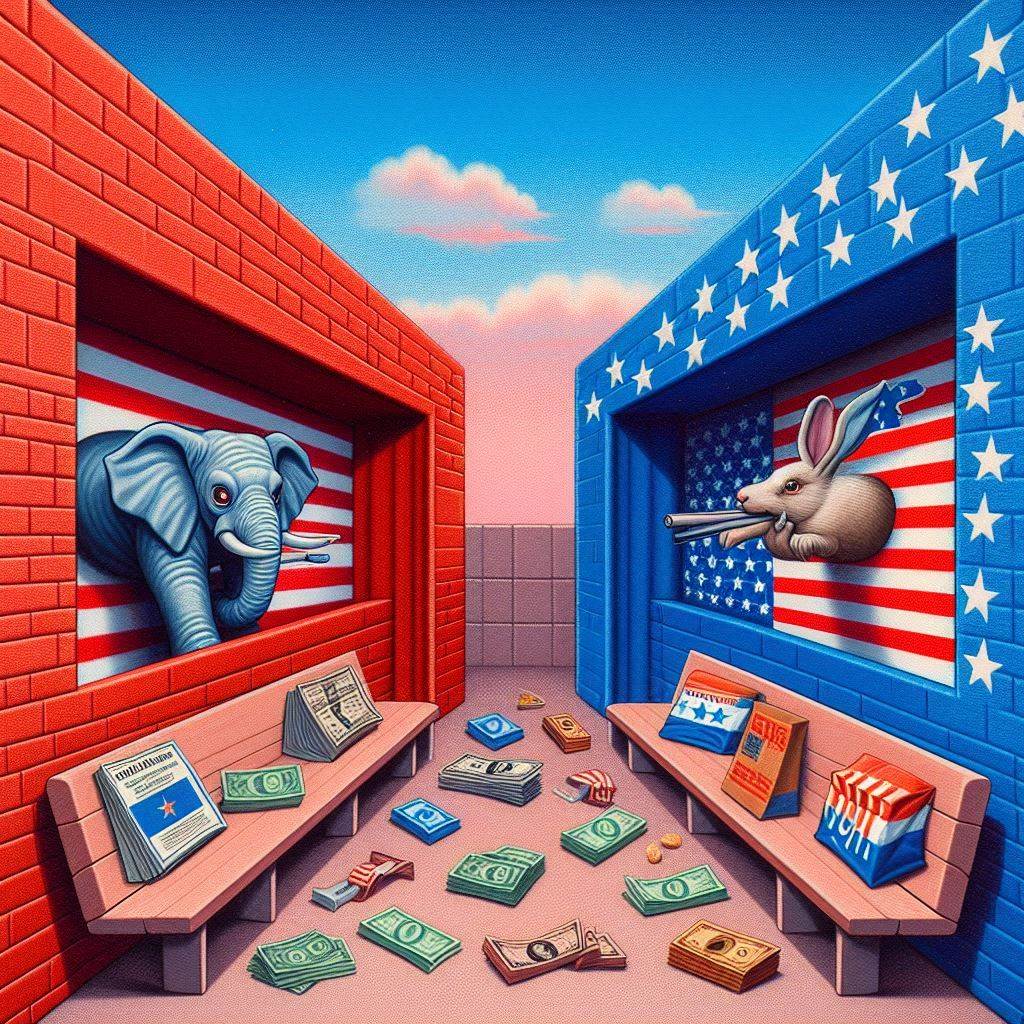During 2024, an election year of global significance, more than half of the world’s population, approximately 4 billion people in 50 countries, will be called to the polls to elect their representatives. These countries include giants such as India and the entire European Union. Still, it is undeniable that special attention will be paid to the US presidential election, which stands out for its international impact and resonance. In these elections, despite the importance of issues such as immigration, geopolitics, abortion and the so-called “culture wars,” the economy is confirmed as a primary campaign issue.
Analyzing the data, President Joe Biden can boast of some notable successes, which can be summarized as “two and a half missions accomplished” (keeping in mind that presidents like to take credit when things go well and make excuses when they go wrong, so my remarks should be interpreted with this caveat in mind).
Recovery after the pandemic
The first mission accomplished is leading the country out of the pandemic with a stronger economic recovery than other developed countries. US gross domestic product increased at an annualized rate of 5.2 per cent in the third quarter and 3.3 per cent in the fourth quarter of 2023. According to an analysis by economist Daniel Harari, the US recorded the highest percentage increase in real GDP among G7 countries in the third quarter of 2023 compared to pre-pandemic levels (fourth quarter of 2019), with an increase of 7.3 per cent.
The figure highlights the robustness of the US economic recovery, in sharp contrast to the more modest changes recorded by European G7 members. For example, Italy experienced a 3.4 per cent growth over the same period, while France experienced a 1.7 per cent increase. On the other hand, the United Kingdom and Germany ranked last in Europe, with increases of 1.4 per cent and 0.3 per cent, respectively.
A second “mission accomplished” occurred during Biden’s presidency, namely that inflation came back under control, achieving a “soft landing” without triggering a recession. There is a lively debate about what mechanisms produced the result, whether the Federal Reserve’s raising interest rates, the easing supply chain disruptions, or other factors. But the fact is that after peaking at 9.1 percent in June 2022, the inflation rate in the US has fallen significantly. The latest surveys showed that prices rose only 0.2 per cent from November to December 2023, slightly above the Fed’s annual target of 2 per cent.
A labor market is really strong
These data are especially relevant considering that not only has there been no recession, but the labour market is extremely strong, with unemployment stably low at around 3.7 per cent and record employment numbers. Compared to the start of the pandemic in February 2020, the US economy now has nearly 5 million more jobs. Moreover, despite inflation, economic growth has been accompanied by real wage increases, that is, nominal wage increases that exceed inflation increases. A recent empirical study found that the post-pandemic recovery has led to a significant improvement in wages for workers at the lower end of the distribution, narrowing the wage gap between college graduates and non-graduates and significantly counteracting the increase in wage inequality seen over the past four decades in the United States.
The “half” mission accomplished by Biden is about restarting public investment in America after decades of stagnation. Investments in infrastructure, ecological transition, and the sector considered strategic in semiconductors have been an important component of “Bidenomics,” along with policies favouring workers’ unions and actions to protect consumers and workers against the market power of big business, including through more aggressive antitrust policy.
What Americans think about the economy
However, Biden faces a very different perception in the population. Important segments of Americans are unhappy with the economic situation. A recent Pew Research poll shows that about three in ten Americans (28 per cent) currently rate national economic conditions as excellent or good, while a similar proportion (31 per cent) say they are bad and about four in ten (41 per cent) consider them only “fair.” In January 2020, at the beginning of the final year of the Trump administration, as many as 57 per cent of Americans considered the economic situation to be excellent or good.
The disconnect between reality and perception has been christened by some as a “vibecession,” or recession in people’s “vibes,” or “feelings.” John Burn-Murdoch shows that a wide gap between how people say they feel about the economy and indicators of how the economy is doing is a phenomenon specific to the United States. It is hard not to associate these perceptions with the negative judgment of President Biden, considering that only 33 per cent of Americans currently approve of his presidency, while 65 per cent disapprove of it. The president’s approval rate has not exceeded 40 per cent since April 2022.
How can the disconnect be explained? Among those who say conditions are bad or only fair (72 per cent of Americans), the most frequently expressed reasons are high inflation (28 per cent) and high cost of living (21 per cent). One possibility is that although inflation has indeed slowed, it takes some time for people to perceive this change. Suppose perceptions depend not on the latest figure but, for example, on the average of the last 1-2 years. In that case, it will take several months of low inflation for the average to change significantly and with-it perceptions. One positive for Biden is that perceptions improved in January from the previous month, an encouraging trend for the outgoing president.

The uncertainty factor
It should also be mentioned that economic perceptions are polarized according to people’s political orientation. Negative perceptions are driven by Republican and independent voters. They state that the economy is in good or excellent condition, 44 per cent of Democrats, 28 per cent of independents and 13 per cent of Republican voters. The negative opinion of Republican voters fits with the tenor of the line of Donald Trump, so far abundantly leading the race for the Republican nomination, and that economic collapse is imminent and only he can save the country. Trump’s economic platform does not seem to have changed from the past: further tax cuts, intensive exploitation of oil resources, opposition to environmentalist policies such as subsidies for electric vehicle adoption and tightening tariffs on imports.
The electoral track record of Trump-led Republicans is not good. Since the 2016 presidential election, they have either lost or performed well below expectations: Republicans lost the House of Representatives in the 2018 Midterm election, Trump lost the 2020 presidential election, and Democrats retained control of the Senate in the 2022 midterm election against predictions of Republican victories in both chambers.
Expected overall effects
Then there are the geopolitical tensions, ranging from the situation in Ukraine to the conflict in Gaza to rising tensions between China and Taiwan, all of which could significantly affect the global and domestic environment. In this regard, the outcome of the presidential election will obviously have global effects because Biden and Trump have very different views on foreign policy. While Biden spearheaded aid to Ukraine in the wake of the Russian invasion in February 2022, Trump sees it as Europe’s problem; indeed, the former president has stated that, if re-elected, he would stop “the endless flow of U.S. money to Ukraine” and ask the Europeans to “reimburse the United States for the cost of rebuilding the arms stockpile.”
While Biden can boast tangible economic successes, the challenge remains to bridge the gap between economic reality and public perception. This factor could prove decisive in the upcoming U.S. presidential election. In addition, uncertainty persists due to the domestic and international volatile situation, which could significantly influence the election environment and outcomes.



